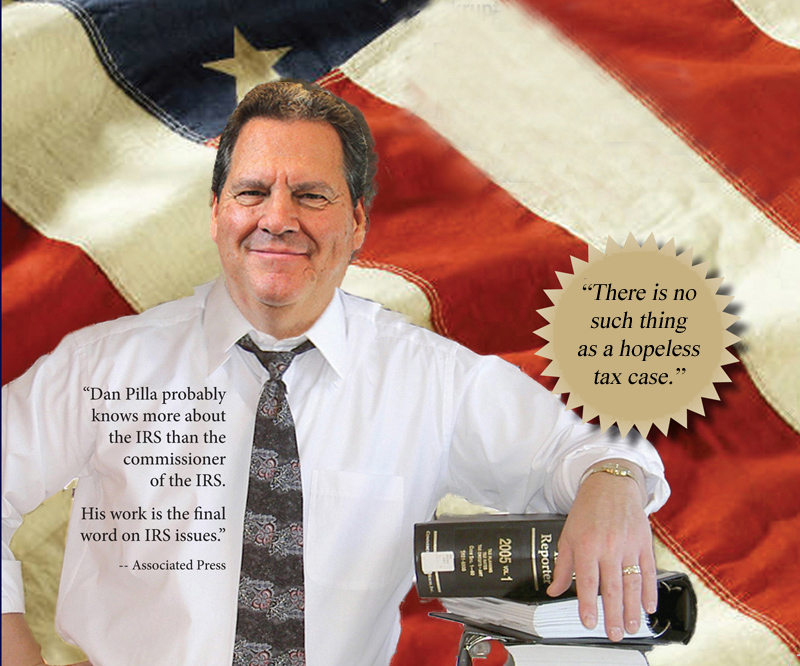HOW TO RELEASE WAGE AND BANK LEVIES CLAIMS
A Deep Dive Into the Idea of “Economic Hardship”
The IRS issues hundreds of thousands of wage and bank levies annually. At best, the levies cause much disruption in one’s life as bank accounts and paychecks get swept up. At worst, the levies cause serious economic hardship as they put the victim in the position of being forced to pay delinquent taxes at the expense of feeding one’s family.
In this Special Report I examine at length the legal authority for releasing levies that cause “economic hardship” due to lack of ability to pay necessary living expenses. I also explain the process of obtaining a release of levy.
The Source of Levy Authority
Internal Revenue Code section 6331(a) provides the IRS with authority to issue third-party levies if a delinquent citizen “neglects or refuses” to pay the tax liability. Section 6331 expresses many rules on the levy process and delineates certain limitations regarding levies. One such limitation is that before a levy may be issued, the IRS must mail a Notice of Intent to Levy. See: §6331(d). That notice must explain a person’s right to seek a Collection Due Process (CDP) hearing in accordance with section 6330.
Too often, citizens do not request a CDP hearing because they either don’t understand the importance of such a hearing or don’t know how to properly request one. Just as often, ignorant and frightened citizens don’t even open mail they receive from the IRS, and therefore don’t realize they ever had the right to such a hearing. In any case, once CDP rights have expired the IRS is free to collect through enforcement action, such as with third-party levies.
The Reach of a Levy
A levy generally reaches all of the “property possessed and obligations existing” at the time the levy is issued. See: IRC § 6331(b). The phrase “property possessed” refers to property owned by the taxpayer at the time of the levy, as for example, the balance of one’s bank account. The phrase “obligations existing” refers to the obligation of a third-party to pay the delinquent taxpayer. For example, your employer has an obligation to pay wages for services rendered. As such, one’s entire paycheck and bank account balance are attached once the levy is issued (although wages are subject to a modest exemption under section 6334).
In the case of a levy on “salary or wages,” such levy is deemed “continuous from the date such levy is first made until such levy is released under section 6343.” See: IRC § 6331(e). This is the provision that can cause serious financial hardship because, unlike other third-party levies, a levy on wages in not a one-and-done event. It continues from payperiod to payperiod until the tax is either paid in full or the levy is specifically released under section 6343. I discuss section 6343 in detail below.
Levies that make it impossible to pay necessary living expenses constitute a financial chokehold on the victim. That’s why every tax professional must know how to win the release of third-party levies generally, and in particular, what the IRS means by the phrase “economic hardship.”
The concept of “economic hardship” comes into play in a number of circumstances, including: 1) the negotiation of an Offer in Compromise (OIC), 2) the closing of a case as currently not collectible (CNC), 3) the establishment of an installment agreement, and 4) perhaps most importantly, winning the release of third-party levies.
General Rules for Releasing Levies
Want to read the entire special report? Order Pilla Talks Taxes
PTT subscribers get this article and more when they download their November 2023 issue of Pilla Talks Taxes. Looking for a single issue? Contact our office for pricing.
Looking for a tax pro in your area? Check out our Taxpayers Defense Institute consulting members.
December Pilla Talks Taxes Issue
SPECIAL REPORT
HOW TO RELEASE WAGE AND BANK LEVIES
A Deep Dive into the Idea of “Economic Hardship”
November Pilla Talks Taxes
Articles
IRS PANICKING OVER ERC CLAIMS
Agency Concerned that “Aggressive Marketing” Responsible for Bogus Claims
A TALE OF TWO COLLECTION APPEAL CASES
Conclusive Proof That Timing Matters
2023 TAXPAYERS DEFENSE CONFERENCE
Attendee Testimonials
LOOKING TO STAY CURRENT ON THE LATEST TAX CHANGES?
Dan Pilla' monthly newsletter, Pilla Talks Taxes, features news stories and developments in federal taxes that effect your pocket book. Each information packed issue shows you how to use little known strategies to cut your taxes, protect yourself from the IRS, exercise important taxpayers' rights and keeps you up to date on the latest trends in Washington on the important subjects of taxes and your rights. You can't afford to miss a single issue!
10 issues per year. $99.00 per yr Order Now!
Click here for more information on
PTT articles and subscription options.
An email address is required to receive this newsletter.
--------------------------
LOOKING FOR A SPECIFIC TOPIC?
Check out our
INDEX of PILLA TALKS TAXES articles

